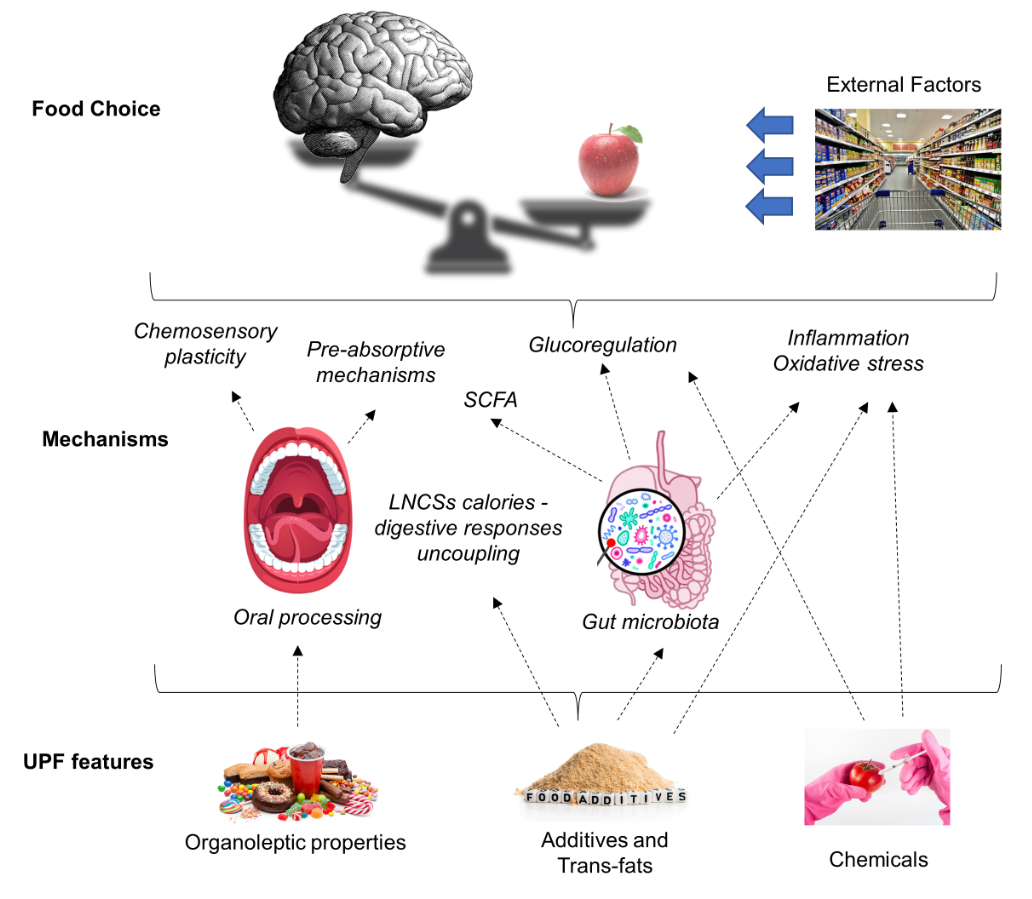
Ultra-processed foods and beverages (UPF) are combinations of ingredients that result from industrial processes. They are usually low in nutrients but high in energy density, with a high content of saturated and trans fats and added sugars. They also have certain organoleptic characteristics and often contain additives, chemicals (such as bisphenol) and other contaminants.
The production of ultra-processed foods has been spectacular in recent decades, as has their consumption, especially in children and adolescents. UPF consumption has been associated with adverse health effects such as dietary overeating, promotion of inflammatory and oxidative stress states, intestinal dysbiosis, and metabolic dysfunction including impaired glucose regulation.
A study led by Dr. Oren Contreras, researcher of the Medical Imaging group of the Institute of Biomedical Research of Girona (IDIBGI) has reviewed the scientific evidence on the impact of these alterations on brain networks involved in eating behavior, including the potential impact on serotonergic and dopaminergic neurotransmission, and brain integrity and function. This is a multidisciplinary review carried out in collaboration with Dr. Rosa M. Escorihuela and Dr. Montserrat Solanas, from the Medical Psychology and Physiology Units of the Faculty of Medicine of the Autonomous University of Barcelona (UAB).
This review, which has been published in the journal Reviews in Endocrine and Metabolic Disorders, suggests that high UPF exposure may contribute to the automatic recruitment of brain regions associated with overeating, to the detriment of prefrontal cortexes that inhibit overeating. Thus, preliminary evidence indicates that UPF consumption is detrimental to brain health and eating behavior, although future human research is required.
Reference article: https://link.springer.com/article/10.1007/s11154-022-09711-2